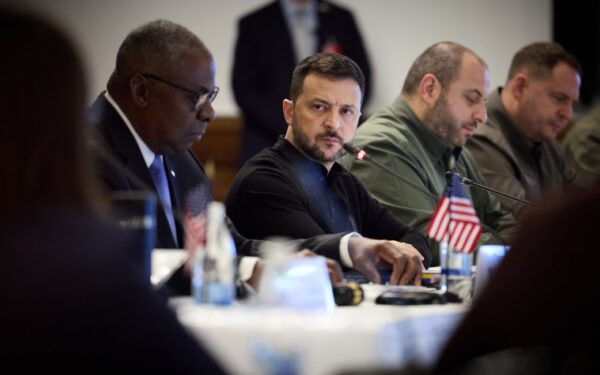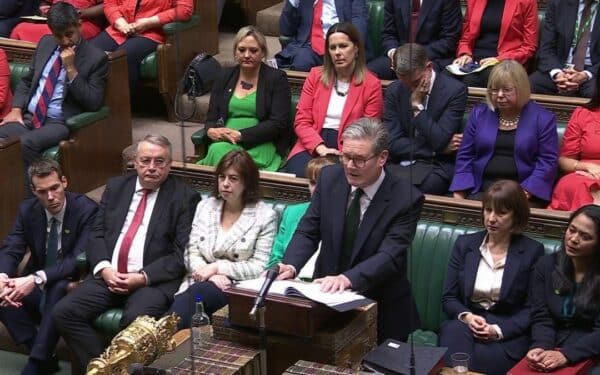Prime Minister May has ruled out the return of physical infrastructure on the border between Northern Ireland and the Republic of Ireland after the UK departs the EU in March 2019. The problem is that this commitment is incompatible with her current position of withdrawing from the single market and customs union. And no amount of aspiration or hand-wringing is likely to change the hard facts.
Theresa May is fighting wars on several fronts – in Brussels, in Parliament, and within her own party – but she must now realise that in the Brexit negotiations, the Prime Minister and her negotiators will not find any stronger ally than the Irish government. Ireland wants to see a fair deal for the UK, and one that does as little damage to Ireland and possible. It will want an agreement that safeguards the fragile social cohesion, especially in the border regions, which remain some of the most deprived parts of both countries.
However, the UK runs the risk of alienating its closest partner and ally in the EU negotiations through the continued lack of any clear or workable solution to the major challenges posed by the border issue. This situation is worsened by the recalcitrance of the DUP, whose MP Sammy Wilson last November called the Irish Taoiseach – who is of Indian heritage – more of a ‘cowboy’ than an Indian for the way his government had approached the UK’s departure from the EU. It is also worsened by the lack of tact and guile shown by senior UK government figures towards the sensitivities around the border, shown most recently by the foreign secretary’s bizarre remarks that likened the challenges of managing the border to the congestion charge.
The border issue is too important to not be taken seriously, and Dublin knows that London’s stated commitment to keeping the border open, without the provision of any details of how this might work, has so far fallen short of what would be acceptable.
Last Sunday, on the BBC’s Andrew Marr show, in the wake of the UK government’s publication of its proposed ‘Brexit plan’, the Irish foreign minister (and deputy prime minister) Simon Coveney restated the Irish position, confirming that the government ‘will look at all the solutions proposed by the UK government to the challenges posed by the border’.The UK government’s proposal, he said, provided a ‘starting point’ for talks, but not yet anything like solution. Coveney reminded Marr that the ‘backstop’ option agreed by the UK and the EU last December states clearly that in the absence of any agreement, Northern Ireland will remain fully aligned with the rules of the customs union and the single market – which would ensure that tariffs remain absent for cross-border trade. Coveney reaffirmed the Irish government’s willingness to ‘work positively with Britain to explore solutions’ while making clear that if a solution can’t be reached then the backstop is there for a reason.
However, Prime Minister May is in hoc to the extremists in the Democratic Unionist Party (DUP) upon whose support her government relies on to maintain a majority in Parliament – and the only party, other than UKIP, that called for a Brexit vote. The backstop agreement is unacceptable to the DUP, who, along with some mainly Conservative MPs, oppose the deal on the grounds that it would create a border in the Irish Sea and would amount to the annexation of Northern Ireland.
But they are wrong. This is a great deal for Northern Ireland, and should be recognised as such. It allows the province to maintain the benefits of EU membership, without incurring the liabilities. By providing a special status for Northern Ireland, this arrangement obviates the need for border controls. The UK government must stand up to the DUP, in the interest of the maintenance of social cohesion and peace in Northern Ireland – which, it should be said, voted 56%-44% to remain in the EU referendum.
The current Irish government, which is led by the centre-right Fine Gael party (essentially the Irish Tories) make no claim on Northern Ireland, but has a stake in the maintenance of the peace process, as all parties in the UK and Ireland should have. What’s more, while the Stormont power-sharing executive remains on hiatus and Sinn Féin continues to abstain from taking their seats in Westminster, the Dublin government is the only body that speaks for the nationalist community in Northern Ireland. Theresa May should realise that the Irish government is not the enemy, and that Dublin and Westminster want the same things for Northern Ireland – namely, the protection of peace and prosperity.
There are few things that are clear about Brexit, but one of them is that the border cannot be fudged. A solution will require creativity, a willingness to compromise, and goodwill – qualities which have been sorely lacking thus far in the UK government’s approach to the Brexit negotiations. What’s more, the UK’s best hope of a good Brexit lies in Dublin. Taoiseach Leo Varadkar’s Fine Gael party is a member of the European People’s Party, the party of Angela Merkel and Jean Claude Juncker. Varadkar is intelligent and is taken seriously in Brussels, and Theresa May’s government should focus its energies on working with Dublin, rather than disregarding the seriousness of the border question and reneging on deals that had been agreed in good faith.
The backstop arrangement agreed in December is good for Northern Ireland, and the prime minister should stick to it. The DUP know that to force an election now would likely usher in a Labour government, whose leader has a track record of supporting the Irish Republican cause, and with whom the DUP would be unlikely to get much sympathy. The DUP should be allowed to choose, and when the chips are down, it’s clear which way they’d go. Call their bluff Mrs May, and protect the fragile peace in Northern Ireland.
Barry Colfer is a research associate at Policy Network, and a teaching fellow at Sciences Po in Le Havre, France. He holds a PhD in politics from Cambridge, and has worked at the Irish and European parliaments.



